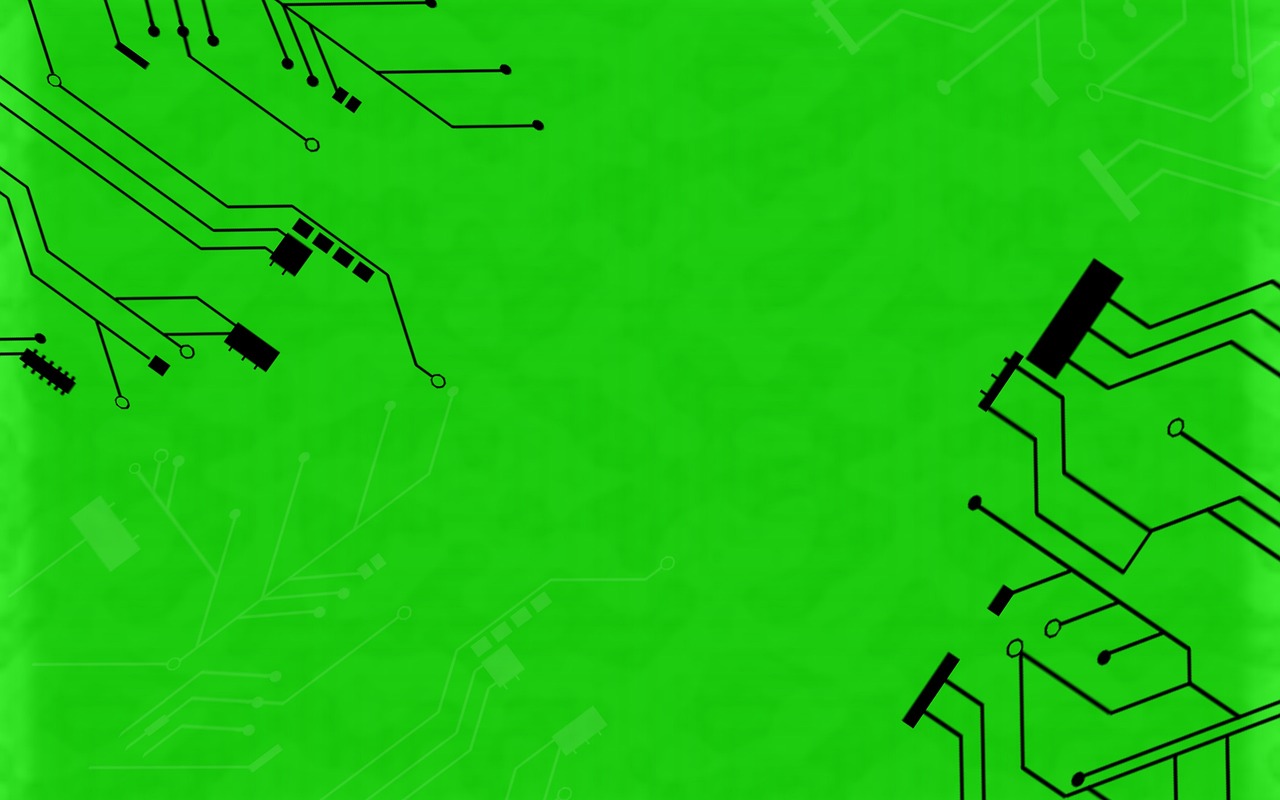Technological Determinism - A Philosophical Evaluation
In today’s fast-paced world, where technology seems to dictate the rhythm of our lives, the concept of technological determinism emerges as a critical lens through which we can evaluate societal change. At its core, technological determinism suggests that technology is the primary force driving societal transformation. This idea prompts us to ask: Are we merely passengers on a technological train, or do we have the power to influence its direction? As we delve into this philosophical evaluation, we will uncover the nuances of how technology shapes our understanding of progress, development, and even our very identity.
The implications of technological determinism are profound. It raises questions about our autonomy and the extent to which we can shape our future. For instance, consider how the rise of social media has altered our communication habits and social interactions. Are we adapting to technology, or is technology adapting to us? These questions will guide our exploration, as we consider both historical perspectives and contemporary critiques of this complex relationship.
As we navigate through this article, we will encounter key theorists who have significantly contributed to the discourse on technological determinism, such as Marshall McLuhan and Langdon Winner. Their insights will help us understand the intricate dance between technology and society, shedding light on the cultural, economic, and political ramifications of our technological choices. Ultimately, this evaluation will not only illuminate the past but also challenge us to think critically about the future of technology and its role in shaping human experience.
In a world increasingly defined by rapid technological advancements, understanding the philosophical underpinnings of technological determinism is essential. It compels us to reflect on our relationship with technology and consider how we can actively engage with it, rather than passively accept its influence. So, as we embark on this journey, let’s keep an open mind and prepare to challenge our preconceived notions about technology and its power over society.
- What is technological determinism? - It is the theory that technology is the primary factor influencing societal change.
- Who are the key theorists associated with this concept? - Notable theorists include Marshall McLuhan and Langdon Winner.
- How does technological determinism differ from social constructivism? - Technological determinism emphasizes technology's influence on society, while social constructivism argues that society shapes technology.
- What are the implications of technological determinism for the future? - It raises critical questions about human agency, ethics, and the role of emerging technologies in shaping our lives.

Defining Technological Determinism
Technological determinism is a fascinating concept that posits technology as the driving force behind societal change. Imagine a world where the tools we create dictate not only how we communicate but also how we think, behave, and interact with one another. This perspective suggests that technology is not merely a collection of tools at our disposal; rather, it shapes the very fabric of our society. Historically, this idea has been rooted in the belief that technological advancements lead to inevitable social transformations, influencing everything from cultural norms to economic structures.
At its core, technological determinism argues that technology is the primary agent of change in society. This view can be traced back to the early industrial revolution when inventions like the steam engine and the telegraph began to reshape human interactions and labor. As these technologies evolved, so too did the understanding of their impact on social dynamics. Thinkers like Marshall McLuhan and Langdon Winner have been instrumental in developing this theory, emphasizing how technology can dictate the pace and direction of social evolution.
To better understand this concept, we can break down its key components:
- Causality: Technology is seen as the primary cause of social change, suggesting a linear relationship where advancements lead directly to societal shifts.
- Irreversibility: Once a technology is adopted, its effects are often seen as irreversible, fundamentally altering the social landscape.
- Neutrality: Technological determinism often assumes that technology itself is neutral, meaning it is society's use of technology that imbues it with value.
This perspective can be quite compelling, but it also raises important questions. For instance, does technology really dictate our actions, or do we, as individuals and communities, have the power to shape how technology is used? This debate is at the heart of the discussion surrounding technological determinism and is essential for understanding its broader implications.
As we delve deeper into this topic, we will explore the historical context that has shaped technological determinism, the key theorists who have contributed to its development, and the ongoing debate between technological determinism and social constructivism. By examining these elements, we can gain a clearer picture of how technology influences society and, conversely, how societal values can shape technological advancements.

Historical Context
Understanding the historical development of technological determinism is crucial to grasping its implications in contemporary society. This concept did not emerge in a vacuum; rather, it evolved through various intellectual currents and societal changes. To appreciate its significance, we must trace its roots from the early days of industrialization through to the digital revolution of today.
In the 19th century, the rapid advancements in machinery and manufacturing began to reshape social structures. Thinkers like Karl Marx and Max Weber explored how technology influenced class structures and economic systems. Marx, for instance, argued that the means of production fundamentally shaped societal relations, suggesting that technological advancements could lead to class struggles and ultimately, societal change.
As we moved into the 20th century, the conversation around technology shifted. The advent of mass media and communication technologies brought forth new ways of understanding the relationship between technology and society. Marshall McLuhan, a pivotal figure during this era, famously stated, "the medium is the message." His assertion highlighted that the way information is transmitted can be just as important as the content itself. This perspective opened the door to further discussions on how technology influences not just communication, but also cultural and social dynamics.
Another significant contributor to the discourse on technological determinism was Langdon Winner. In his works, Winner emphasized the political and ethical dimensions of technology, challenging the notion that technology is neutral. He argued that technological artifacts are inherently political, as they can embody specific values and power structures. This critique invites us to consider not just how technology shapes society, but also how societal values shape technology in return.
As we dive deeper into the 20th century, we observe a growing recognition of the interplay between technology and society. The rise of the internet and digital technologies further complicated this relationship, leading to a new wave of theorists and thinkers questioning the deterministic view. The emergence of social constructivism, for example, posits that social contexts and human decisions play a critical role in shaping technological development. This perspective serves as a counterbalance to the deterministic narrative, suggesting that technology does not operate in isolation but is deeply intertwined with human agency and societal values.
In summary, the historical context of technological determinism reveals a rich tapestry of ideas and influences. From the early industrial revolution to the digital age, the evolution of this concept reflects ongoing debates about the role of technology in shaping human experience. As we continue to navigate this complex landscape, it's essential to remain aware of the historical roots that inform our current understanding of technology's impact on society.
- What is technological determinism?
Technological determinism is the theory that technology is the primary driver of societal change, influencing culture, economy, and politics.
- Who are the key theorists associated with technological determinism?
Prominent theorists include Marshall McLuhan, who emphasized the impact of media on society, and Langdon Winner, who critiqued the political dimensions of technology.
- How does technological determinism differ from social constructivism?
While technological determinism posits that technology shapes society, social constructivism argues that societal contexts and human actions influence technological development.
- What are some critiques of technological determinism?
Critics argue that it oversimplifies the relationship between technology and society, neglecting the role of human agency and contextual factors.

Key Theorists
When diving into the realm of technological determinism, it's impossible to ignore the profound contributions of key theorists who have shaped our understanding of this complex relationship between technology and society. Two of the most influential figures in this field are Marshall McLuhan and Langdon Winner. Their insights not only illuminate the intricacies of technological impact but also provoke critical thought regarding the ethical and societal implications of our ever-evolving technological landscape.
Marshall McLuhan, a Canadian philosopher and media theorist, is perhaps best known for his assertion that "the medium is the message." This phrase encapsulates his belief that the medium through which content is delivered profoundly influences how that content is perceived and understood. McLuhan argued that each form of communication, whether it be print, television, or digital media, shapes our experiences and interactions in unique ways. For instance, he posited that the rise of electronic media has transformed our social dynamics, leading to a more interconnected but also fragmented world. His work encourages us to consider not just the content we consume but the very platforms that facilitate this consumption.
On the other hand, Langdon Winner offers a more critical perspective on technological determinism. He argues that technology is not merely a neutral tool; rather, it is imbued with political and ethical dimensions that can shape societal structures. In his influential work, Winner explores how certain technologies can reinforce power dynamics and social inequalities. For example, he discusses how urban planning technologies can either promote accessibility or exacerbate segregation, depending on who designs and controls these technologies. Winner's critique serves as a reminder that while technology can drive change, it is ultimately human choices that determine how that change unfolds.
Both McLuhan and Winner challenge us to reflect on the interplay between technology and society. While McLuhan emphasizes the transformative power of media, Winner urges us to consider the ethical implications of our technological choices. This dynamic tension between their perspectives highlights the need for a nuanced understanding of technological determinism, one that recognizes the role of human agency and social context in shaping the trajectory of technological development.
As we explore their theories, it becomes clear that the discourse surrounding technological determinism is not just academic; it has real-world implications for how we navigate our increasingly digital lives. Are we passive consumers of technology, or active participants in shaping its future? The answers to these questions may very well define the societal landscape for generations to come.
In summary, the contributions of key theorists like McLuhan and Winner provide invaluable frameworks for understanding the complex relationship between technology and society. Their insights compel us to engage critically with the technologies we adopt and to consider the broader implications of our choices. As we continue to advance technologically, these discussions will remain crucial in guiding us toward a more equitable and thoughtful future.

Marshall McLuhan's Insights
Marshall McLuhan, a Canadian philosopher and media theorist, is perhaps best known for his provocative assertion that "the medium is the message." This phrase encapsulates his belief that the form of a medium embeds itself in the message it transmits, thereby influencing how the message is perceived. In other words, the way information is delivered can shape our understanding and interaction with that information, often more significantly than the content itself. Imagine reading a book versus watching a film adaptation of that same book; the medium transforms not just the experience but also the interpretation of the narrative.
McLuhan's insights into technology and communication are particularly relevant in today's digital age. He argued that each new medium—be it print, television, or the internet—restructures human experiences and societal norms. For instance, the advent of the internet has not only changed how we consume information but has also altered our social interactions, relationships, and even our cognitive processes. The immediacy of digital communication fosters a culture of instant gratification, which can lead to superficial interactions and a diminished attention span. This evolution of communication is akin to a ripple effect in a pond; throw a stone (or in this case, a new technology), and the waves spread out, impacting everything in their path.
Moreover, McLuhan identified different "ages" of media, each characterized by its predominant medium. He categorized these as:
- The Tribal Age: Dominated by oral communication, where information was shared in communal settings, fostering unity and collective identity.
- The Literate Age: Marked by the advent of the printing press, leading to individualism as people began to read and interpret texts independently.
- The Print Age: Further emphasizing literacy and the spread of ideas, but also creating divisions based on access to printed material.
- The Electronic Age: Defined by the rise of electronic media, where instant communication breaks down geographical barriers and creates a global village.
In this context, McLuhan's work serves as a lens through which we can examine the profound changes brought about by technology. He warned that as we become increasingly immersed in electronic media, we risk losing our ability to think critically and engage deeply with content. The challenge lies in navigating this complex landscape, ensuring that we harness technology to enhance our understanding rather than diminish it. McLuhan's insights remind us that while technology can be a powerful tool for connection and progress, it also requires us to be vigilant and intentional about how we engage with it.
Ultimately, McLuhan's theories compel us to reflect on our relationship with technology. Are we mere consumers of media, shaped by its influence, or do we have the agency to shape how technology impacts our lives? This question remains at the heart of the ongoing discourse surrounding technological determinism and its implications for society.
- What is the main idea behind McLuhan's "the medium is the message"? McLuhan suggests that the way information is communicated (the medium) has a more significant impact on society than the content of the information itself.
- How does McLuhan's work relate to today's digital age? His insights about the effects of different media on human interaction and cognition are increasingly relevant as digital communication becomes dominant.
- What are the different "ages" of media according to McLuhan? McLuhan identified the Tribal Age, Literate Age, Print Age, and Electronic Age, each characterized by its dominant form of communication.

the medium is the message
This article explores the concept of technological determinism, its implications, critiques, and philosophical perspectives. We will delve into how technology influences society and human behavior, shaping our understanding of progress and development.
Technological determinism posits that technology is the primary driver of societal change. This section will clarify this concept, examining its historical roots and foundational theories that have shaped its interpretation.
Understanding the historical development of technological determinism is crucial. This section will explore key thinkers and movements that have influenced the concept, tracing its evolution from early industrialization to the digital age.
This subsection will highlight prominent theorists such as Marshall McLuhan and Langdon Winner, discussing their contributions to the understanding of technological determinism and its societal implications.
McLuhan's famous phrase "the medium is the message" emphasizes how technology shapes communication and society. This part will delve into his theories and their relevance today.
When McLuhan coined the phrase, he was not merely talking about the content delivered through media but rather the profound impact that the medium itself has on shaping human experiences and societal norms. Just think about it: when you read a book, the printed word is not just a collection of letters; it's a medium that influences how you perceive the world. It creates a different experience compared to watching a movie or scrolling through social media. Each medium has its own unique characteristics that can alter our understanding and interaction with information.
In today's digital landscape, this idea is more relevant than ever. The rise of social media platforms has transformed how we communicate, share information, and even form relationships. For instance:
- Instant Communication: Social media allows for real-time interactions, changing the dynamics of personal and professional relationships.
- Information Overload: The sheer volume of content available online can lead to confusion and misinformation.
- Echo Chambers: Algorithms curate content based on our preferences, often leading us to only engage with viewpoints that mirror our own.
These examples illustrate how the medium—social media, in this case—shapes not just the message but also our behavior and societal norms. McLuhan's insights remind us that we must critically evaluate not only the content we consume but also the platforms through which we receive it. As we navigate this digital age, understanding the implications of “the medium is the message” becomes essential for fostering informed and engaged communities.
Winner provides a critical perspective on technology's role in society. This section will explore his arguments regarding the political and ethical dimensions of technological determinism.
This subsection will contrast technological determinism with social constructivism, highlighting the debate over whether technology shapes society or vice versa, and examining the implications of each viewpoint.
Technological determinism significantly influences various aspects of society, including culture, economy, and politics. This section will discuss these impacts, providing examples of how technology shapes societal norms and values.
This subsection will explore how technological advancements lead to cultural transformations, affecting communication, art, and social interactions in contemporary society.
Technological determinism has profound implications for the economy. This section will analyze how technology drives economic growth, labor markets, and the global economy.
Many philosophers and sociologists criticize technological determinism for oversimplifying the relationship between technology and society. This section will present various critiques, emphasizing the importance of considering human agency and social context.
This subsection will discuss the role of human decision-making in shaping technology and its societal effects, arguing against the deterministic view that technology alone drives change.
Contextual factors, such as culture, politics, and economics, also influence technology's impact on society. This section will explore how these factors interact with technological developments, challenging deterministic narratives.
The future of technological determinism raises critical questions about the role of emerging technologies. This section will examine potential implications for society, ethics, and human behavior in a rapidly evolving technological landscape.
- What is technological determinism? Technological determinism is the theory that technology is the primary driver of societal change.
- How does McLuhan's idea relate to modern technology? McLuhan's idea, "the medium is the message," highlights how different technologies shape our experiences and interactions.
- What are the critiques of technological determinism? Critics argue that technological determinism oversimplifies the relationship between technology and society, neglecting human agency and contextual factors.
- Why is understanding this concept important? Understanding technological determinism helps us critically engage with technology's role in shaping our lives and society.

emphasizes how technology shapes communication and society. This part will delve into his theories and their relevance today.
Marshall McLuhan, a visionary thinker of the 20th century, profoundly emphasized how technology shapes communication and society. His famous phrase, "the medium is the message," encapsulates the idea that the way information is delivered is just as important—if not more so—than the content itself. This perspective invites us to consider how various media influence our perceptions, interactions, and ultimately, our societal structures. For instance, the transition from print to digital media has transformed not only how we consume information but also how we engage with one another. In today's world, where social media platforms dominate, McLuhan's insights remain strikingly relevant.
To illustrate his theories, let’s consider the evolution of communication technologies. Each medium carries its own set of implications for social interaction. For example, the shift from face-to-face conversations to text messaging has altered our communication dynamics. While we can communicate instantly, the nuances of personal interaction often get lost. McLuhan argued that this shift does not merely change how we communicate; it reshapes our social fabric. The immediacy of digital communication can lead to superficial connections, affecting our relationships and how we perceive community.
Furthermore, McLuhan believed that technology extends our senses, altering our experiences of space and time. The advent of the internet has created a global village, where geographical barriers dissolve, and cultural exchanges flourish. However, this interconnectedness also raises questions about cultural homogenization and the loss of local identities. As we navigate through this digital landscape, McLuhan’s theories encourage us to critically evaluate the implications of our technological choices.
In today's context, we can observe the impact of these theories in various aspects of our lives. For instance, the rise of influencers on social media platforms exemplifies how the medium shapes not just communication but also societal values. The way individuals curate their online personas reflects deeper societal trends, often prioritizing image over substance. This phenomenon can lead to a culture of comparison, where self-worth is measured against curated online identities.
In conclusion, McLuhan's insights into the relationship between technology and society are not merely historical artifacts; they are crucial for understanding the contemporary world. As we continue to innovate and integrate new technologies into our lives, reflecting on McLuhan's ideas can help us navigate the complexities of modern communication, ensuring that we remain aware of the profound impacts these technologies have on our social structures.
- What is technological determinism?
Technological determinism is the theory that technology is the principal factor in shaping societal change, influencing how individuals interact and perceive the world. - Who was Marshall McLuhan?
Marshall McLuhan was a Canadian philosopher and media theorist known for his work on the effects of media on human perception and communication. - What does "the medium is the message" mean?
This phrase suggests that the medium through which content is delivered affects how the message is perceived, often more significantly than the content itself. - How do McLuhan's theories apply today?
McLuhan's theories are relevant in understanding the impact of social media, digital communication, and the ways technology alters our social interactions and cultural norms.

Langdon Winner's Critique
Langdon Winner, a prominent philosopher of technology, offers a compelling critique of the concept of technological determinism. He argues that viewing technology as an autonomous force that drives societal change oversimplifies the complex interplay between technology and human agency. Winner emphasizes that technology is not merely a set of tools; instead, it is deeply embedded within social, political, and cultural contexts. He asserts that understanding technology requires acknowledging the **political** and **ethical** dimensions that accompany technological advancements.
Winner's critique revolves around the idea that technologies are designed and implemented by humans, often reflecting the values and interests of those in power. For instance, he points out that the design of a technology can favor certain social groups while marginalizing others. This perspective challenges the deterministic view that technology shapes society in a linear fashion. Instead, Winner posits that technology and society co-evolve, influencing each other in a dynamic relationship.
To illustrate his argument, Winner uses the example of urban planning and infrastructure. He highlights how the design of highways in the United States not only facilitated faster travel but also contributed to social segregation by disproportionately benefiting affluent neighborhoods while isolating poorer communities. This example underscores the importance of questioning who benefits from technological advancements and who is left behind. In this way, Winner encourages a more nuanced understanding of technology's role in shaping societal structures.
Furthermore, Winner raises ethical questions about the implications of technological choices. He argues that the decisions made during the design and implementation of technologies can have profound consequences, shaping not only our physical environment but also our social interactions and cultural norms. This perspective invites us to consider: What values are embedded in the technologies we create? Are we prioritizing efficiency over equity? Are we allowing technology to dictate our lives, or are we actively shaping its trajectory?
In summary, Langdon Winner's critique of technological determinism serves as a vital reminder of the **interconnectedness** between technology and society. By emphasizing the role of human agency and the ethical dimensions of technological development, Winner challenges us to think critically about the technologies we create and adopt. His insights encourage a more participatory approach to technology, where societal values and ethical considerations are at the forefront of technological innovation.
- What is technological determinism? Technological determinism is the theory that technology is the primary driver of societal change, influencing social structures and cultural values.
- Who is Langdon Winner? Langdon Winner is a philosopher of technology known for his critiques of technological determinism and his emphasis on the social and ethical implications of technology.
- How does Winner view the relationship between technology and society? Winner believes that technology and society co-evolve, with technology being shaped by human decisions and social contexts, rather than acting as an independent force.
- What are the ethical implications of technology according to Winner? Winner argues that the design and implementation of technology can reflect societal values and interests, raising questions about who benefits from technological advancements and the potential for social inequality.

Technological Determinism vs. Social Constructivism
The debate between technological determinism and social constructivism is one of the most fascinating discussions in the realm of technology and society. At its core, technological determinism suggests that technology is the principal force driving societal changes. In this view, technological advancements dictate not only how we communicate but also how we live our lives. Think of it as a train on a predetermined track, where technology is the locomotive pulling society along, often at high speeds and with little room for deviation.
On the other hand, social constructivism posits that human actions, social contexts, and cultural values shape technology. Here, technology is seen more as a product of human ingenuity and societal needs rather than an autonomous force. Imagine a sculptor shaping a block of marble; the sculptor's decisions and influences dictate the final form of the statue, just as society molds technology to fit its needs and desires.
This dichotomy raises several critical questions: Is technology the master or the servant? Are we merely passive recipients of technological advancements, or do we actively shape these innovations? To illustrate this contrast, consider the following table:
| Aspect | Technological Determinism | Social Constructivism |
|---|---|---|
| Agency | Technology drives change | Humans shape technology |
| View of Technology | Autonomous force | Socially constructed |
| Examples | Industrial Revolution | Social media platforms |
As we dissect these perspectives, it becomes clear that both play significant roles in understanding the relationship between technology and society. For instance, the rise of the internet has transformed communication, but it didn't emerge in a vacuum. Social factors, such as the need for instant connectivity and the evolution of cultural norms around information sharing, have heavily influenced its development. Thus, while technological determinism emphasizes the impact of technology on society, social constructivism highlights the reciprocal relationship where society also influences technological advancements.
In conclusion, the interplay between technological determinism and social constructivism creates a rich tapestry of understanding regarding our relationship with technology. It's not merely a question of which side is correct; rather, it's about recognizing that both perspectives provide valuable insights into how we navigate our increasingly complex technological landscape.
- What is technological determinism? Technological determinism is the theory that technology is the primary driver of societal change, influencing how we live, communicate, and interact.
- How does social constructivism differ from technological determinism? Social constructivism argues that human actions and social contexts shape technology, emphasizing that technology is not an autonomous force but rather a product of societal needs and values.
- Can both perspectives coexist? Yes, both technological determinism and social constructivism can coexist, providing a more comprehensive understanding of the relationship between technology and society.
- Why is this debate important? Understanding this debate helps us critically analyze the implications of technology in our lives and recognize the role we play in shaping technological advancements.

Impacts on Society
Technological determinism significantly influences various aspects of society, reshaping our culture, economy, and political landscape. It's fascinating to observe how the tools we create can dictate the way we live, interact, and even think. For instance, consider the rise of social media. Platforms like Facebook and Twitter have not only changed how we communicate but have also redefined societal norms and values. The immediacy of information sharing has led to a culture where news travels faster than ever, but it also raises questions about the accuracy and reliability of that information. Are we better informed, or are we just bombarded with noise?
Moreover, technology has a profound impact on our economy. It drives innovation and efficiency, often leading to increased productivity. However, it also presents challenges, particularly in the labor market. As automation and artificial intelligence become more prevalent, many jobs are at risk of becoming obsolete. This transformation prompts a critical question: How do we balance technological advancement with the need for employment? The answer lies in understanding the intricate relationship between technology and economic structures.
To illustrate the economic impacts of technological determinism, let’s look at a few key areas:
- Job Creation vs. Job Loss: While technology creates new job opportunities in emerging fields, it simultaneously displaces workers in traditional industries.
- Globalization: Technology has facilitated global trade, allowing companies to operate on an international scale, but it has also led to economic disparities between nations.
- Consumer Behavior: E-commerce has transformed how consumers shop, leading to a shift in retail dynamics and expectations.
Politics, too, is not immune to the reach of technological determinism. The way we engage with political processes has evolved dramatically thanks to technology. From online voting to social media campaigns, technology shapes political discourse and mobilizes public opinion. However, this influence can be a double-edged sword. While it enables greater participation, it also raises concerns about misinformation and the manipulation of public sentiment. As we navigate this new political landscape, we must ask ourselves: Are we truly more empowered, or are we simply subjects to the whims of algorithms?
In summary, the impacts of technological determinism on society are profound and multifaceted. Technology shapes our cultural practices, economic structures, and political engagements in ways that are both beneficial and challenging. As we continue to innovate and integrate new technologies into our lives, it is crucial to remain aware of these impacts and strive for a balance that promotes human agency and social well-being.
- What is technological determinism?
Technological determinism is the theory that technology is the primary driver of societal change, influencing how we live, work, and interact. - How does technology impact culture?
Technology influences cultural norms and values, changing how we communicate and interact with one another, often leading to significant cultural shifts. - What are the economic implications of technological determinism?
While technology can drive economic growth and create new jobs, it can also lead to job displacement and economic disparities. - Can technology influence politics?
Yes, technology shapes political engagement, from online campaigning to social media discussions, but it can also lead to misinformation and manipulation.

Cultural Shifts
The rapid advancement of technology has undeniably led to significant that resonate through every aspect of our lives. From the way we communicate to how we express our creativity, technology acts as a catalyst for change. Imagine a world where conversations were limited to face-to-face interactions; now, we can connect with anyone across the globe with just a few taps on our screens. This profound transformation blurs the lines of traditional communication and redefines our social fabric.
One of the most notable cultural shifts is the evolution of communication itself. The rise of social media platforms has revolutionized how we interact, share ideas, and engage with one another. No longer are we confined to local communities; instead, we participate in a global dialogue. For instance, platforms like Twitter and Instagram allow individuals to voice their opinions, share their art, and mobilize for social causes, creating a dynamic landscape where every voice can be heard. However, this accessibility also raises questions about authenticity and privacy, as the lines between personal and public life become increasingly blurred.
Moreover, technology influences our cultural expressions, particularly in the realms of art and entertainment. The advent of digital art tools and online streaming services has democratized access to creative platforms. Artists can now reach audiences worldwide without traditional gatekeepers, leading to a more diverse range of artistic expressions. Think about the impact of platforms like YouTube and TikTok; they have birthed new genres and styles, allowing creators to innovate in ways that were previously unimaginable. This shift not only enriches our cultural landscape but also challenges the notion of what constitutes art in the modern age.
As we navigate these cultural transformations, it's essential to recognize that technology does not operate in a vacuum. It interacts with existing cultural norms and values, often reshaping them in the process. For example, the increasing reliance on technology for communication has led to a decline in face-to-face interactions, prompting discussions about the quality of our relationships. Are we losing the depth of human connection in our quest for convenience? This question underscores the need for a balanced approach to technology, where we embrace its benefits while remaining mindful of its potential drawbacks.
To illustrate the impact of technology on cultural shifts, consider the following table that highlights key areas of transformation:
| Area of Transformation | Impact of Technology |
|---|---|
| Communication | Shift from face-to-face to digital interactions, fostering global connectivity. |
| Art and Creativity | Democratization of art through digital tools and platforms, leading to diverse expressions. |
| Social Norms | Changing perceptions of privacy and authenticity in the digital age. |
| Education | Online learning platforms transforming access to education and learning methodologies. |
In conclusion, the cultural shifts prompted by technological advancements are profound and multifaceted. As we continue to adapt to this ever-evolving landscape, it’s crucial to reflect on how these changes shape our identities, relationships, and societal values. The challenge lies in harnessing technology's potential while preserving the essence of human connection and cultural richness.
- What is technological determinism?
Technological determinism is the theory that technology is the primary driver of societal change, influencing how we think, act, and interact. - How has technology changed communication?
Technology has shifted communication from face-to-face interactions to digital platforms, allowing for instant connectivity globally. - What are some examples of cultural shifts due to technology?
Examples include the rise of social media, changes in artistic expression, and the evolving dynamics of personal relationships. - Can technology negatively impact our culture?
Yes, while technology offers many benefits, it can also lead to issues like decreased face-to-face interactions and challenges to privacy.

Economic Changes
Technological determinism has a profound impact on the economy, acting as a catalyst for change across various sectors. It is fascinating to observe how advancements in technology drive economic growth, reshape labor markets, and influence the global economy. For instance, the rise of automation and artificial intelligence has transformed traditional industries, leading to increased productivity but also raising concerns about job displacement. As machines take over repetitive tasks, workers are forced to adapt, often requiring new skills that align with the evolving technological landscape.
Moreover, the digital economy has emerged as a dominant force, altering how businesses operate and consumers interact. E-commerce platforms, driven by technological innovation, have revolutionized shopping habits, enabling consumers to purchase goods and services from the comfort of their homes. This shift not only impacts local businesses but also contributes to a global marketplace where competition is fierce.
To illustrate the economic changes brought about by technology, consider the following table that highlights the key areas affected:
| Area of Impact | Description |
|---|---|
| Productivity | Increased efficiency through automation and advanced technologies. |
| Labor Markets | Shift in job requirements; demand for tech-savvy workers increases. |
| Globalization | Technology enables businesses to reach international markets easily. |
| Consumer Behavior | Changes in purchasing habits due to the rise of online shopping. |
In addition, the gig economy has flourished, fueled by technological platforms that connect freelancers with clients. This new economic model offers flexibility and autonomy for workers but also raises questions about job security and benefits. As more individuals embrace freelance work, traditional employment structures are being challenged, leading to a rethinking of labor rights and protections.
Overall, the implications of technological determinism on the economy are vast and multifaceted. While technology can drive growth and innovation, it also presents challenges that society must navigate. As we continue to advance technologically, understanding these economic changes becomes crucial for policymakers, businesses, and workers alike.
- What is technological determinism? Technological determinism is the theory that technology is the primary driver of societal change.
- How does technology impact the economy? Technology influences productivity, labor markets, consumer behavior, and globalization.
- What are the challenges posed by technological advancements? Challenges include job displacement, the need for new skills, and questions about job security in the gig economy.
- Who are the key theorists associated with this concept? Prominent theorists include Marshall McLuhan and Langdon Winner, who provide insights into technology's role in society.

Critiques of Technological Determinism
While technological determinism offers a compelling framework for understanding the influence of technology on society, many scholars and thinkers argue that it oversimplifies the intricate relationship between technology and human behavior. Critics contend that this perspective often neglects the role of human agency, the social context, and the multifaceted nature of technological development. After all, can we truly say that technology alone drives change, or is it more accurate to view it as a complex interplay between innovation and human choices?
One major critique is centered around the concept of human agency. Critics argue that people are not just passive recipients of technological advancements; instead, they actively shape and influence the development and implementation of technology. For instance, consider how social movements can spur technological innovation. The rise of renewable energy technologies, such as solar panels and wind turbines, was significantly driven by societal demands for sustainable practices. This shows that while technology can drive change, it is often the decisions and values of individuals and communities that play a crucial role in determining how that technology is used and integrated into society.
Moreover, contextual factors such as culture, politics, and economics also play a significant role in shaping technology's impact on society. For example, the adoption of smartphones has varied greatly across different cultures and economies. In some regions, smartphones have revolutionized communication and commerce, while in others, they have not had the same transformative effect. This variability highlights the importance of considering the social context in which technology is introduced. A technology that thrives in one environment may falter in another due to differing cultural norms, economic conditions, or political climates.
Additionally, the deterministic view often overlooks the potential for technology to be used for both positive and negative ends. As Langdon Winner argues, the design and implementation of technology can reflect the values and interests of those in power, leading to ethical dilemmas. For instance, the use of surveillance technology raises questions about privacy and civil liberties. Here, the relationship between technology and society isn't a straightforward cause-and-effect scenario; rather, it is fraught with ethical considerations that demand a nuanced understanding.
To further illustrate these critiques, consider the following table that contrasts the deterministic view with a more nuanced understanding of technology's role in society:
| Aspect | Technological Determinism | Nuanced Perspective |
|---|---|---|
| Agency | Humans are passive recipients of technology. | Humans actively shape technology and its applications. |
| Context | Technology shapes society uniformly. | Societal context influences technology's impact and adoption. |
| Ethics | Technology is inherently neutral. | Technological use reflects societal values and ethical considerations. |
In conclusion, while technological determinism provides valuable insights into the relationship between technology and society, it is essential to recognize its limitations. By acknowledging the roles of human agency and contextual factors, we can develop a more comprehensive understanding of how technology influences our lives. As we move forward in an increasingly technological world, it is critical to remain aware of these dynamics to navigate the challenges and opportunities that lie ahead.
- What is technological determinism? Technological determinism is the theory that technology is the primary force driving societal change.
- Who are some key theorists associated with this concept? Prominent theorists include Marshall McLuhan and Langdon Winner.
- What are the main critiques of technological determinism? Critics argue that it oversimplifies the relationship between technology and society, neglecting human agency and contextual factors.
- How does human agency interact with technology? Humans actively shape technology's development and implementation, influencing its societal impact.
- Why is context important in understanding technology's effects? Contextual factors such as culture, politics, and economics significantly influence how technology is adopted and utilized in different societies.

Human Agency
When we dive into the concept of , we uncover a crucial aspect that challenges the deterministic view of technology. While technological determinism suggests that technology shapes society in a one-way street, human agency introduces the idea that individuals and communities actively shape technology in ways that reflect their needs, desires, and cultural contexts. It's like a dance, where both technology and humanity influence each other's moves, creating a complex choreography of progress and adaptation.
To illustrate this point, consider the example of social media. Initially, platforms like Facebook and Twitter were designed to connect people and share information. However, as users began to engage with these technologies, they shaped the platforms' functionalities and cultural significance. Users demanded features like privacy settings, content moderation, and various forms of expression, ultimately influencing how these technologies evolved. This interaction shows that while technology provides the framework, it is the users—driven by their values and choices—who truly determine its direction.
Moreover, human agency is not limited to individual actions; it extends to collective movements and societal decisions. For instance, the rise of renewable energy technologies has been heavily influenced by grassroots movements advocating for sustainability and environmental justice. These movements have pressured governments and corporations to adopt cleaner technologies, demonstrating that societal values can significantly influence technological development.
However, it’s important to recognize that human agency does not operate in a vacuum. Various contextual factors, such as politics, economics, and cultural norms, play a pivotal role in shaping how individuals and societies engage with technology. For instance, in a country where regulations are lax, technology might advance unchecked, leading to societal issues like privacy violations or misinformation. Conversely, in a context where ethical considerations are prioritized, technology can develop in ways that align with societal values.
In summary, human agency is a powerful counterpoint to technological determinism. It emphasizes that while technology certainly influences society, it is ultimately human choices, actions, and cultural contexts that shape how technology is used, adapted, and understood. This interplay highlights the dynamic relationship between technology and society, reminding us that we are not merely passive recipients of technological change but active participants in its evolution.
- What is technological determinism? Technological determinism is the theory that technology is the primary driver of societal change, influencing how societies develop and function.
- How does human agency challenge technological determinism? Human agency posits that individuals and communities actively shape technology based on their needs and values, countering the idea that technology solely dictates societal changes.
- Can technology influence culture? Yes, technology can significantly impact culture by changing how we communicate, create art, and interact socially, but cultural values also shape technological advancements.
- What role do contextual factors play in technology's impact on society? Contextual factors such as politics, economics, and cultural norms influence how technology is developed, implemented, and perceived in society.

Contextual Factors
When we dive into the realm of technological determinism, it's crucial to recognize that technology does not exist in a vacuum. Instead, it interacts with a myriad of that shape its development and societal impact. These factors include cultural norms, political climates, and economic conditions, all of which play significant roles in determining how technology is adopted and utilized.
For instance, consider how different cultures embrace technology. In some societies, technology is seen as a tool for empowerment and progress, while in others, it may be viewed with skepticism or even fear. This cultural lens can influence everything from the acceptance of new technologies to the ethical considerations surrounding their use. For example, the rise of social media has been met with varying degrees of enthusiasm and criticism across different cultures, highlighting the importance of context in understanding technological adoption.
Moreover, political factors cannot be overlooked. Government policies, regulations, and the overall political environment can either facilitate or hinder technological advancement. In countries with supportive policies and infrastructure, technological innovations can flourish, driving economic growth and societal change. Conversely, in regions with restrictive regulations, technology may struggle to gain traction, leading to disparities in technological access and benefits.
Economic conditions also play a pivotal role in shaping the relationship between technology and society. The availability of resources, investment in research and development, and the overall economic climate can significantly influence how technology is developed and implemented. For example, during economic downturns, funding for innovative technologies may dwindle, slowing progress. On the other hand, during periods of economic prosperity, businesses are often more willing to invest in new technologies, accelerating their integration into everyday life.
In summary, while technological determinism suggests that technology is the primary driver of societal change, it is essential to consider the contextual factors that interact with technology. These factors create a complex web of influences that ultimately shape how technology impacts our lives. Understanding this interplay allows for a more nuanced view of technological development and its implications for society.
- What is technological determinism?
Technological determinism is the theory that technology is the principal factor influencing societal change, often suggesting that advancements in technology drive social progress. - How do cultural factors influence technology?
Cultural factors shape how societies perceive and adopt technology, affecting everything from its acceptance to ethical considerations in its use. - What role do politics play in technological advancement?
Political climates and government policies can either support or restrict technological development, impacting how innovations are integrated into society. - How do economic conditions affect technology?
Economic conditions determine the availability of resources for technological development, influencing investment in new technologies and their adoption.

Future Implications
The future of technological determinism is a topic that stirs a pot of intrigue and concern, especially as we stand on the brink of unprecedented advancements. With technologies like artificial intelligence, biotechnology, and the Internet of Things (IoT) becoming integral parts of our daily lives, we must ask ourselves: what does this mean for our society? Are we merely passive recipients of these innovations, or do we have the power to shape their trajectory? The implications are profound and multifaceted, affecting not just how we live but also how we perceive our roles as individuals within a larger social fabric.
One of the primary questions that arise is about human agency. As technology continues to evolve at a breakneck pace, there is a growing concern that we may lose control over our own creations. For instance, consider the rise of AI-driven decision-making systems. While these technologies can enhance efficiency and productivity, they also raise ethical dilemmas about accountability. If an AI system makes a mistake, who is responsible? The designer, the user, or the technology itself? This conundrum highlights the need for a robust framework that ensures human oversight remains paramount in technological advancements.
Moreover, we must consider the ethical implications of emerging technologies. As we embrace innovations, we should not lose sight of the moral responsibilities that come with them. For example, the use of genetic editing technologies like CRISPR presents a tantalizing opportunity to eliminate genetic diseases, but it also opens the door to potential misuse. The prospect of “designer babies” raises questions about equity and access. Will only the wealthy benefit from such advancements, or can we ensure that these technologies are used for the greater good? The answers to these questions will shape the societal landscape for generations to come.
In addition to ethical concerns, the economic implications of technological determinism cannot be overlooked. As automation and AI continue to transform industries, we face the reality of job displacement. While technology has the potential to create new job opportunities, it also threatens to render many traditional roles obsolete. This shift necessitates a reevaluation of our educational systems and workforce training programs. We must prepare the next generation for a future where adaptability and continuous learning become essential skills. How can we equip ourselves and our children to thrive in an ever-changing job market?
Lastly, the interplay between technology and social dynamics is another critical area of concern. As we become increasingly reliant on digital communication, we must consider how this impacts our relationships and communities. Are we fostering genuine connections, or are we merely exchanging information? The rise of social media has transformed how we interact, but it has also led to feelings of isolation for many. As we move forward, we must strive to create platforms that promote meaningful engagement rather than superficial interactions.
In conclusion, the future implications of technological determinism are vast and complex. As we navigate this uncharted territory, it is crucial to maintain a balanced perspective that recognizes both the potential benefits and the inherent risks of technological advancements. By fostering a culture of ethical responsibility, human agency, and adaptability, we can ensure that technology serves as a tool for empowerment rather than a source of domination.
- What is technological determinism? Technological determinism is the theory that technology is the primary driver of societal change, influencing cultural, economic, and political dynamics.
- How does technological determinism affect human agency? It raises questions about our control over technology, suggesting that as technology advances, we may become more passive, relying on systems that operate independently of human oversight.
- What are the ethical implications of emerging technologies? They include concerns about accountability, equity, and the potential for misuse, particularly in areas like AI and genetic editing.
- How will technology impact the job market? While technology can create new jobs, it also risks displacing existing roles, necessitating a focus on education and retraining for future employment opportunities.
- What is the role of social dynamics in technological advancement? As technology changes how we communicate, it can affect our relationships and community bonds, leading to both positive and negative outcomes.
Frequently Asked Questions
- What is technological determinism?
Technological determinism is the idea that technology is the primary force driving societal changes. It suggests that advancements in technology shape human behavior, culture, and social structures, often outweighing other factors like politics or economics.
- Who are the key theorists associated with technological determinism?
Prominent theorists include Marshall McLuhan, who famously stated "the medium is the message," highlighting how communication technologies influence society. Another key figure is Langdon Winner, who critiques the political and ethical implications of technology, arguing that it can shape societal norms and values.
- How does technological determinism differ from social constructivism?
Technological determinism emphasizes that technology shapes society, while social constructivism argues that societal factors influence technology's development and use. This debate raises important questions about the relationship between humans and the technologies they create.
- What are some cultural impacts of technological determinism?
Technological advancements can lead to significant cultural shifts, affecting how we communicate, create art, and engage socially. For example, the rise of social media has transformed interpersonal communication and community engagement, reshaping cultural norms.
- In what ways does technology impact the economy?
Technology drives economic growth by creating new industries, enhancing productivity, and transforming labor markets. It influences global trade and economic structures, often leading to both opportunities and challenges in the workforce.
- What are the critiques of technological determinism?
Critics argue that technological determinism oversimplifies the complex relationship between technology and society. They emphasize the importance of human agency—the ability of individuals and groups to shape technology—and the contextual factors, such as culture and politics, that also play a crucial role.
- How does human agency challenge technological determinism?
Human agency suggests that people have the power to make choices about how technology is developed and utilized. This perspective challenges the deterministic view by highlighting that societal changes are not solely driven by technology but also by human decisions and actions.
- What future implications does technological determinism have?
The future of technological determinism raises questions about the ethical implications of emerging technologies, such as artificial intelligence and biotechnology. As technology continues to evolve, understanding its societal impact becomes increasingly important for shaping a responsible and equitable future.



















